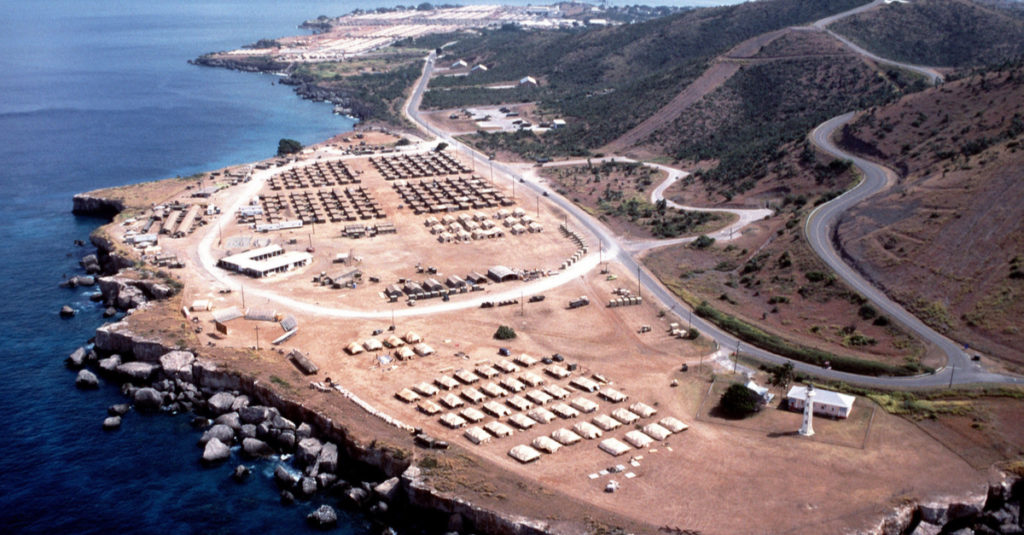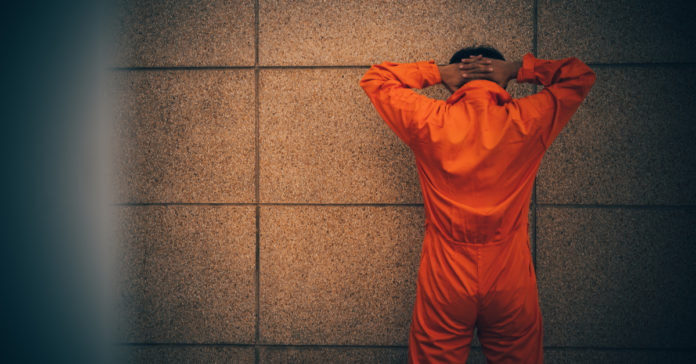On the 20th anniversary of the opening of the U.S. detention camp at Guantanamo Bay, advocacy group CAGE has produced a khutba for imams to deliver on Friday to remember the forgotten prisoners in GITMO.
بِسْمِ اللَّهِ الرَّحْمَٰنِ الرَّحِيمِ
In the name of Allah, the Gracious, the Merciful
The very first prisoners arrived at the U.S. detention facility in Guantanamo Bay on 11th January 2002. Despite five U.S. presidential elections over two decades not a single Guantanamo prisoner – out of 779 captives in total – has been successfully tried or convicted for involvement in the 9/11 attacks – the reason why the prison was open to begin with.
Since then, it has become the world’s most infamous symbol of kidnap, torture and indefinite imprisonment without charge or trial.
Some of the prisoners were subjected to medieval torture techinques like “waterboarding” which was first used against Muslims and Jews during the Spanish Inquisition.
Prisoners from 41 countries were subjected to torture, cruelty, inhumaity and degradation in an environment rife with religious and racial discrimination.
Subscribe to our newsletter and stay updated on the latest news and updates from around the Muslim world!
In the early days, prisoners witnessed the Quran being desecrated – spat upon, urinated upon, kicked and thrown – by U.S. soldiers. The prisoners resisted this by going on hunger-strike for years on end and having to endure painful force-feeding methods.
Unlike most convicted criminals, Guantanamo captives have no visits, no phone calls and have had little access to legal recourse while spending sometimes years in solitary confinement cut off from the rest of the world. The main reason they were sent to Guantanamo was so that the U.S. government could argue that prisoners have no access to the U.S. justice system.
Despite describing them as the “worst of the worst” the vast majority of the prisoners were innocent men, never charged with a crime and were eventually released. However, there are still 38 prisoners there.
There have been at least a dozen children imprisoned in Guantanamo. Nine prisoners never left Guantanamo alive.
Despite the desecration of the Quran and their ordeal many prisoners have memorised the Quran. Several U.S. soldiers who guarded the prisoners – both male and female, black, white and hispanic – have accepted Islam after witnessing the conduct of the prisoners.
Our duty as Muslims
There are 38 prisoners still left in Guantanamo. On January 11th, it will be twenty years of imprisonment for them. They need our support.
We are part of the Muslim Ummah and we stand together against injustice taking place aginst the Ummah from around the world and also here in this country.
Guantanamo has been criticised around the world for being a black hole of injustice and discrimination. World leaders and bodies like the UN have repeatedly condemned Guantanamo for its treatment of prisoners – who are all Muslims.
Muslims have an even greater obligation to seek the closure of Guantanamo and justice and freedom for its inmates.
The importance of freeing prisoners and supporting them is clearly found in the Qur’an and Sunnah. : The Prophet said:
فُكُّوا الْعَانِ
“Free the prisoners..” (Bukhari, no. 7173)

Islamic scholars of the past have already mentioned the importance of striving to free the Muslim prisoners: Ibn Taymiyyah said: “Freeing the prisoners is one of the greatest compulsory deeds and spending ransom money and other means towards that, is one of the greatest ways to come close to Allah.”
Imam Malik said: “It is obligatory on the people to redeem prisoners with their money. There is no contention on this point”.
Some former Gunatanamo prisoners have themselves drawn up a plan on how it can and should be closed in an open letter to the U.S. president. The Muslim community should lend support to this call for the closure of Guantanamo prison.
The Messenger of Allah (saw) said: “Whoever is not concerned with the affairs of Muslims is not from among them.” We should remember that Guantanamo is an issue for all Muslims because the only prisoners there are Muslims.
We should work towards the complete dismantlement of the infrastructure which made those crimes possible, including the unjust laws, policies and practices that were created in this so-called War on Terror.
Courage and inspiration
A great positive for the Ummah as a sign of courage and inspiration for others, we find many prisoners who have been released like our brother Moazzam Begg and others who have been very active in standing up against the oppression taken place by the U.S. in GITMO. He and others have come out with determination to stand for justice and fight for the rights of the remaining prisoners.
The history of Islam is replete with stories of men and women facing imprisonment and abuse at the hands of oppressors. The chapter of the Prophet Yusuf [as] in the Quran vividly illustrates how dealing with unjust imprisonment is not only inherent to the heritage of monotheistic tradition but without it, both the Old Testament [Torah] and the Quran would be incomplete. Yusuf’s own test illustrates how prison is a very real expectation when faced with stark choices:
He [Yusuf] said: “O my Lord! Prison is dearer to me than that to which they invite me. Unless You turn away their plot from me, I will feel inclined towards them and be one of the ignorant.” So his Lord answered his invocation and turned away from him their plot. Verily, He is the All-Hearer, the All-Knower. Then it occurred to them, after they had seen the proofs (of his innocence) to imprison him for a time. (12:33-5)
The Muslim is always positive and optimistic, we know our Lord is Allah and He is always in support of His obedient slaves. We must remain steadfast on the path to justice.


















